Related Research Articles
The 1993 Bombay bombings were a series of 12 terrorist bombings that took place in Bombay, Maharashtra, on 12 March 1993. The single-day attacks resulted in 257 fatalities and 1,400 injuries. The attacks were coordinated by Dawood Ibrahim, leader of the Mumbai-based international organised crime syndicate D-Company. Ibrahim was believed to have ordered and helped organize the bombings through his subordinates Tiger Memon and Yakub Memon.
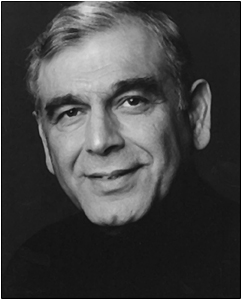
Ismail Merchant was an Indian film producer, director and screenwriter. He worked for many years in collaboration with Merchant Ivory Productions which included Director James Ivory as well as screenwriter Ruth Prawer Jhabvala.

Walchand Hirachand Doshi was an Indian industrialist and the founder of the Walchand group. He established India's first modern shipyard, first aircraft factory and first car factory; he also established construction companies, sugarcane plantations, sugar factories, confectioneries, engineering companies and many other businesses.
Organised crime in India refers to organised crime elements originating in India and active in many parts of the world. The purpose of organised crime in India, as elsewhere in the world, is monetary gain. Its virulent form in modern times is due to several socio-economic and political factors and advances in science and technology. There is no firm data to indicate the number of organised criminal gangs operating in the country, their membership, their modus operandi and the areas of their operations. Their structure and leadership patterns may not strictly fall in line with the classical Italian mafia.
Kutchi Memons, also spelled as Cutchi Memons, are an ethnic group or caste from Kutch in Gujarat, India, who speak the Kutchi language. They are related to the Memons associated with the historic state of Kathiwar, a Muslim community of Pakistan and India, who speak the Memon language.

Ibrahim Mushtaq Abdul Razzaq Memon, better known by the nickname Tiger Memon, is a gangster and terrorist, reputed to be one of the masterminds behind the 1993 Mumbai bombings. He is wanted by Interpol and the Central Bureau of Investigation (CBI). He is a former member of D-Company, a gang led by Dawood Ibrahim. He got the nickname Tiger after helping a petty drugs and weapons smuggler to evade the crime branch of Mumbai Police by driving his car recklessly over 100 km/h on one-way roads.
The Marine Engineering and Research Institute (MERI), formerly known as the Directorate of Marine Engineering Training (DMET), now known as Indian Maritime University - Kolkata Campus and Mumbai Port Campus, is India's national institute and one of the institutes for the training of Marine Engineers and Polyvalent Officers.

UIT University is a not-for profit institute. UIT university's campus is located at the intersection of University Road and Abul Hasan Isphahani Road, Gulshan-e-Iqbal, Karachi, Pakistan.

Mumbai Port Trust is a port which lies midway on the West coast of India, on the natural deep-water harbour of Mumbai (Bombay) in Maharashtra.The harbour spread over 400 square kilometres (150 sq mi) is protected by the mainland of Konkan to its east and north and by the island city of Mumbai to its west. The harbour opens to the south to the Arabian Sea.
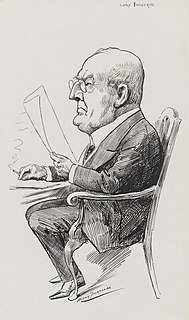
James Lyle Mackay, 1st Earl of Inchcape,, known as Sir James Mackay from 1894 to 1911, was a British businessman and colonial administrator in India who became Chairman of the Peninsular and Oriental Steam Navigation Company ("P&O") and founded Inchcape Retail Ltd.

RMS Empress of India was an ocean liner built in 1890-1891 by Naval Construction & Armaments Co, Barrow-in-Furness, England for Canadian Pacific Steamships. This ship would be the first of two CP vessels to be named Empress of India, and on 28 April 1891, she was the very first of many ships named Empress arriving at Vancouver harbor.
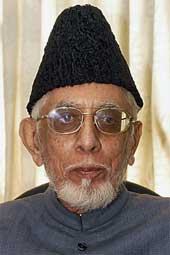
Gulam Mehmood Banatwalla, also spelled as Banatwala, was an Indian politician and social worker from Mumbai. Banatwalla, a "firebrand orator" and intellectual, was regarded as the pan-India face of the Indian Muslim community.
Indigenous tribals have inhabited Mumbai (Bombay) since the Stone Age. The Kolis and Aagri were the earliest known settlers of the islands. The Maurya Empire gained control of the islands during the 3rd century BCE and transformed them into a centre of Hindu-Buddhist culture and religion. Later, between the 2nd century BCE and 10th century CE, the islands came under the control of successive indigenous dynasties: the Satavahanas, Abhiras, Vakatakas, Kalachuris, Konkan Mauryas, Chalukyas, Rashtrakutas, Silharas& Cholas.

The Scindia Steam Navigation Company, founded in 1919, is the second oldest shipping company of India. The first being the Swadeshi Steam Navigation Company of VOC Pillai in today's Tamilnadu that was founded in 1906.
Ismail Hasham was a late 19th-century Indian businessman and the founder of Bombay Steam Navigation Company, the first Indian owned shipping company.
Mohamed Yusuf, , was an early 20th century Indian businessman and philanthropist. He was the proprietor of Bombay Steam Navigation Company. The Yusuf family own vast amounts of land in Mumbai and the vicinity and is one of the ten largest private landowners in Mumbai.
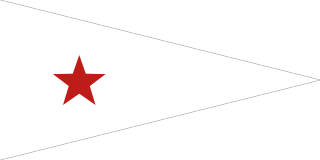
Bombay Steam Navigation Company was the first Indian owned shipping company. It was founded by Ismail Hasham, a Kutchi Memon.

SS Vaitarna, popularly known as Vijli or Haji Kasam ni Vijli, was a steamship owned by A J Shepherd & Co, Bombay that disappeared on 8 November 1888 off the coast of Saurashtra region of Gujarat in a cyclonic storm during a crossing from Mandvi to Bombay. More than 740 people on board went missing in the disaster. The incident resulted in the creation of nautical lores and songs.
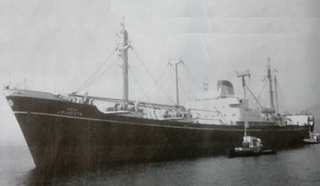
SS Jalabala was the cargo steamship owned by Scindia Steam Navigation Company Ltd., the British Indian shipping company, which was completed in 1927. She was torpedoed and sunk in the Laccadive Sea west of Cape Comorin by the German submarine U-532 with the loss of five of her 77 crew members on 11 October 1943 during World War II.

Yusuf bin Ahmed Kanoo, also known as Haji Yusuf, was a Bahraini merchant and trader who, in 1890, took over his father's business and started the trading empire that would grow into the Yusuf bin Ahmed Kanoo Group, one of the largest independent trading companies in the Gulf region.
References
- ↑ Chainani, Shyam. Nhava & Sheva. India: Academic Foundation. Archived from the original on 2013-09-27.
- 1 2 Bharucha, Nauzer (21 July 2005). "Who are the city's biggest landlords". The Times of India . Archived from the original on 28 September 2013. Retrieved 26 September 2013.
- ↑ Fārūq Aḥmad Chōṭānī, ed. (11 December 2008) [1971]. Memons International Directory (Digitized). the University of Michigan: Memons International. p. Page xliii. Retrieved 26 September 2013.
- 1 2 "Training Ship Rahaman: Background". Training Ship Rahaman. Archived from the original on 27 September 2013. Retrieved 26 September 2013.
- ↑ Hocking, Charles (1969). Dictionary of disasters at sea during the age of steam. UK: Lloyds register of shipping. ISBN 0900528036.